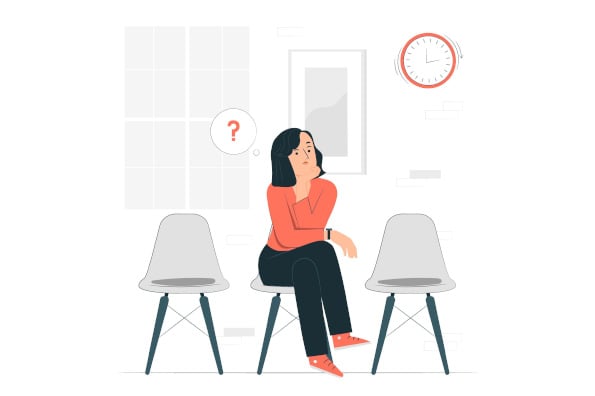The Solo Attorney’s Crash Course to Ranking #1 on Google Maps in 30 Days
Why Google Maps Ranking Matters for Solo Attorneys When potential clients search for an attorney, they don’t just look at websites—they turn to...
9 min read
LegalGPS : Jun. 11, 2025
Solo attorneys face a unique challenge when it comes to attracting clients. Unlike large firms with established reputations and big marketing budgets, solo practitioners must be proactive in generating new business. Without an existing brand to lean on, it’s essential to create a repeatable system for marketing, networking, and online visibility to maintain a steady flow of clients.


Legal GPS Pro
Protect your business with our complete legal subscription service, designed by top startup attorneys.
Many solo attorneys fall into one of two traps:
The key to success is a balanced approach that combines strategic marketing, networking, and SEO. When done right, this system attracts high-quality clients consistently—without burnout or an excessive ad budget.
Most potential clients start their search for an attorney online. Even if someone hears about you from a friend, they’re likely to Google your name before reaching out. If your online presence is weak, you risk losing clients before you even get a chance to speak with them.
A strong online presence doesn’t require a huge investment, but it does need to be clear, professional, and easy to find. Focus on these key elements:
Sarah, a solo family law attorney, struggled with inconsistent leads. After updating her Google Business Profile, adding client testimonials to her website, and regularly posting legal tips on LinkedIn, she saw:
If you’re overwhelmed with where to start, focus on optimizing your Google Business Profile first. It’s one of the fastest, easiest ways to get found by local clients searching for an attorney.
While online marketing is essential, word-of-mouth referrals remain one of the most effective ways to get high-value clients. Networking allows you to build trust and relationships that lead to referrals, whether from other attorneys, industry professionals, or past clients.
Many attorneys assume networking means attending random events and handing out business cards. In reality, effective networking is about building genuine relationships over time. People refer business to those they trust, so the goal is to position yourself as a reliable legal resource rather than just another attorney looking for clients.
Joining the right communities and consistently showing up is more important than simply attending as many events as possible.
Showing up is just the first step—following up and providing value is what turns a contact into a real referral source. Instead of focusing on how others can help you, think about ways you can help them first. If you meet a CPA at a networking event, consider introducing them to a client who needs tax guidance. These small gestures create goodwill and make it more likely that they will send referrals your way.
Another effective strategy is educational networking. Hosting free webinars, offering CLE presentations, or creating legal guides that help industry professionals understand legal issues their clients face can position you as the go-to attorney in your niche.
James, a business attorney, struggled to generate referrals despite attending networking events. Instead of just exchanging business cards, he started scheduling one-on-one coffee meetings with CPAs, business coaches, and commercial realtors. By learning about their businesses and offering legal insights tailored to their clients’ needs, he built trust and formed strong referral partnerships. Within six months, referrals accounted for half of his new client intake.
Networking isn’t about collecting contacts—it’s about building relationships. Focus on consistency, follow-ups, and providing value, and over time, you’ll create a strong referral network that brings in steady clients.
Many potential clients turn to Google first when they need an attorney. If your firm doesn’t appear in search results for key terms like “DUI lawyer near me” or “business contract attorney in [city]”, you’re losing clients to competitors who do.
Search engine optimization (SEO) allows your website and Google Business Profile to rank higher in local searches, bringing in consistent, high-quality leads without paid advertising. Unlike networking, which takes time to build relationships, SEO works 24/7, helping you attract new clients even when you’re not actively marketing.
Google favors local attorneys who have well-optimized Google Business Profiles. Start by ensuring your GBP includes:
Publishing useful, keyword-optimized blog posts improves your website’s chances of ranking in search results. Instead of generic topics, write about questions potential clients actually search for, such as:
Consistently publishing helpful content positions you as an authority in your field while also improving SEO rankings.


Legal GPS Pro
Protect your business with our complete legal subscription service, designed by top startup attorneys.
Google ranks websites higher when they have credible backlinks from authoritative sources. You can earn backlinks by:
Emily, a solo personal injury lawyer, was struggling to rank on Google. She optimized her Google Business Profile, added location-based keywords to her website, and wrote blog posts answering common legal questions. Within six months, her firm ranked on page one for “car accident lawyer near me,” leading to a 60% increase in consultation requests.
If you want quick SEO wins, start with your Google Business Profile and client reviews. Google prioritizes local law firms with well-maintained listings, and even a small boost in rankings can lead to a significant increase in calls and consultations.
While many attorneys assume social media is just for big firms or influencers, it’s actually a powerful tool for solo attorneys to build credibility, stay top of mind, and attract clients. Potential clients often research attorneys before reaching out, and an active, professional social media presence can reinforce trust and authority.
Content marketing—through blog posts, videos, or LinkedIn articles—helps establish you as the go-to lawyer in your practice area. It also complements your SEO strategy, making it easier for clients to find you when they need legal help.
You don’t need to be on every social network. Choose platforms based on where your ideal clients or referral sources spend their time.
Instead of promotional posts, focus on educational content that solves problems for potential clients. Some effective content ideas include:
Short-form videos (under 2 minutes) explaining common legal topics tend to perform well. Videos allow potential clients to see and hear you, which builds credibility faster than text alone.
For example, a criminal defense attorney could create a video titled, “What Happens at Your First Court Appearance?” and share it on LinkedIn, YouTube Shorts, or TikTok.
David, a solo criminal defense attorney, started posting weekly legal tips on LinkedIn and Facebook. Instead of direct sales pitches, he shared short Q&A videos answering common legal concerns. Within three months, he saw:
You don’t need to post every day. Consistency is more important than frequency. Start with one or two posts per week on a platform where your ideal clients or referral partners are most active.
While organic marketing efforts like SEO and networking build long-term visibility, paid advertising provides immediate client leads. The key is targeting the right audience so that every dollar spent generates real consultations—not just clicks.
Many attorneys waste money on Google Ads and Facebook Ads because they use broad, high-cost keywords, fail to track conversions, or send traffic to ineffective pages. A well-optimized paid ads strategy can attract high-value cases without draining your budget.
Google Ads work best when you focus on keywords that show immediate intent to hire.
Set up negative keywords to block searches from users who are not looking to hire an attorney (e.g., students, job seekers, or DIY legal researchers).
One of the biggest mistakes attorneys make is sending ad traffic to their homepage. A landing page designed for conversions will dramatically improve results. It should include:
Google Ads capture clients actively searching for an attorney, while Facebook and Instagram ads are best for raising brand awareness and retargeting website visitors.
Lisa, a solo estate planning attorney, was spending $3,000 per month on Google Ads but getting few conversions. After switching to high-intent keywords, creating a dedicated landing page, and tracking phone calls, she:
If you’re new to paid ads, start small—a $500/month budget can test what works before scaling. Track every lead source so you know which ads bring in real clients.
Getting clients as a solo attorney doesn’t require massive ad budgets or relying on luck. By combining smart marketing, strategic networking, and strong SEO, you can create a steady, predictable flow of new business—without burning yourself out.
The most successful solo attorneys use a balanced approach that includes:
By implementing these strategies, you should see:
Most importantly, you’ll stop chasing clients and instead create a sustainable system that attracts them to you. Whether through SEO, referrals, networking, or paid ads, building a client pipeline is about consistency, not quick fixes.
By taking action today, you’ll set up your firm for long-term success—growing your reputation, client base, and revenue year after year.

Legal GPS Pro
Protect your business with our complete legal subscription service, designed by top startup attorneys.
Table of Contents

Why Google Maps Ranking Matters for Solo Attorneys When potential clients search for an attorney, they don’t just look at websites—they turn to...

Think TikTok’s just for dance videos? Think again. In 2025, solo attorneys are tapping into viral legal trends to attract clients—no choreography...

For solo attorneys, client consultations can be a double-edged sword. While they are essential for securing new business, they also consume...